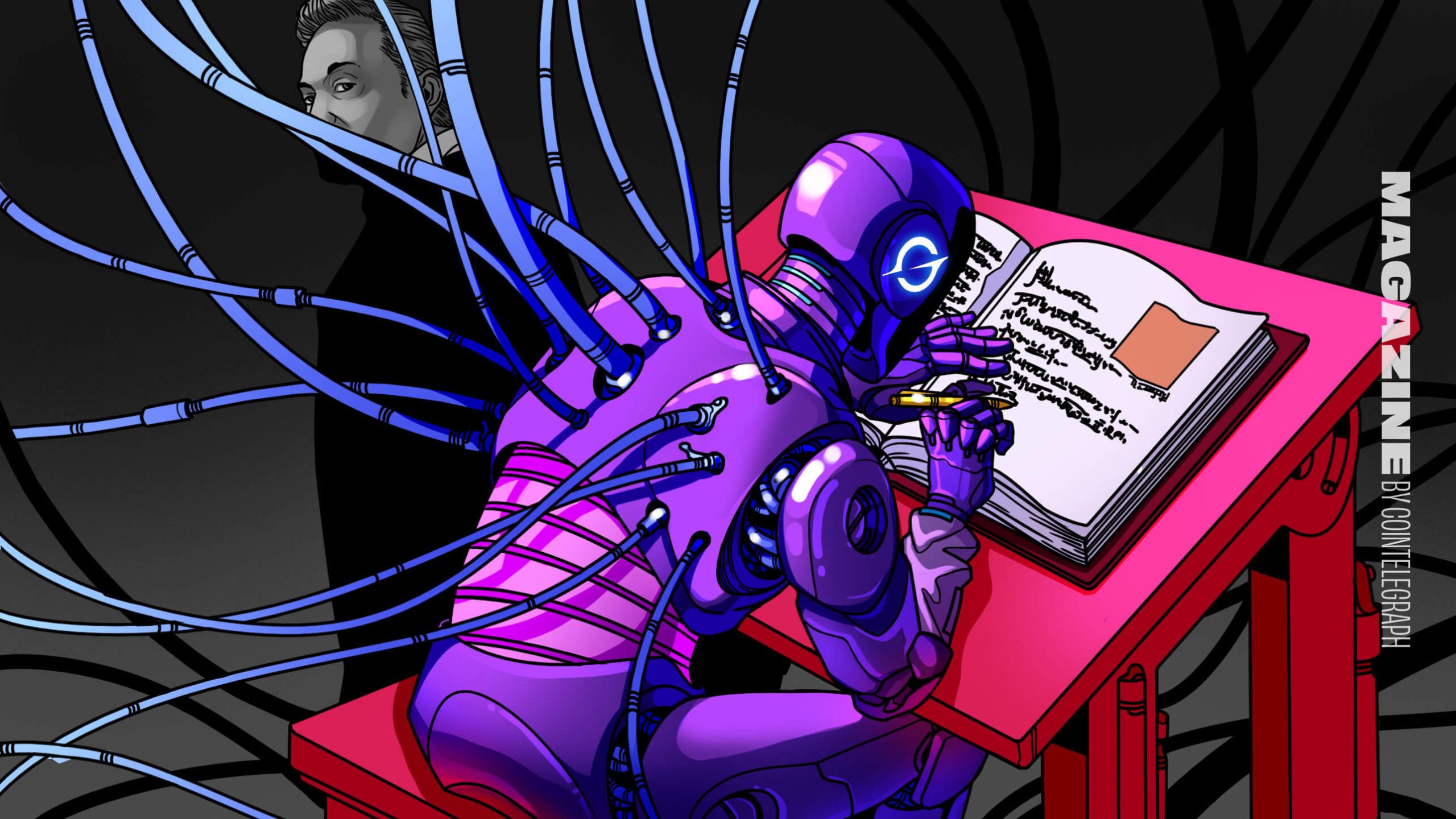‘Far right talking points’ or much-needed antidote to Wikipedia?
For 24 years, Wikipedia has relied on fallible humans to write about everything there is to know about anything. Grokipedia, created by Elon Musk’s xAI, is finally set to challenge that.
Supporters of Grokipedia say it’s the best thing that’s come out on the internet since… well, Wikipedia. However, Musk’s critics argue his new encyclopedia is nowhere near as neutral as it claims and is pushing “right-wing” talking points.
But maybe they’re both right.
Elon Musk’s Grokipedia idea was born just a month ago
It was only at the end of September when Elon Musk announced xAI was building Grokipedia, claiming it would be a “massive improvement over Wikipedia,” and address “falsehoods” and “half-truths” on the internet.
It’s v0.1, released on Monday as an “early beta,” and saw huge praise from his supporters on X, with many praising what they see as Grokipedia’s clinical approach to politically charged topics, such as Charlie Kirk, George Floyd, and even Bitcoin.
Grokipedia has only 885,279 articles at launch, and most searches yield empty results. It is also yet to benefit from extensive user edits to fix errors or hallucinations — though that functionality is built in.
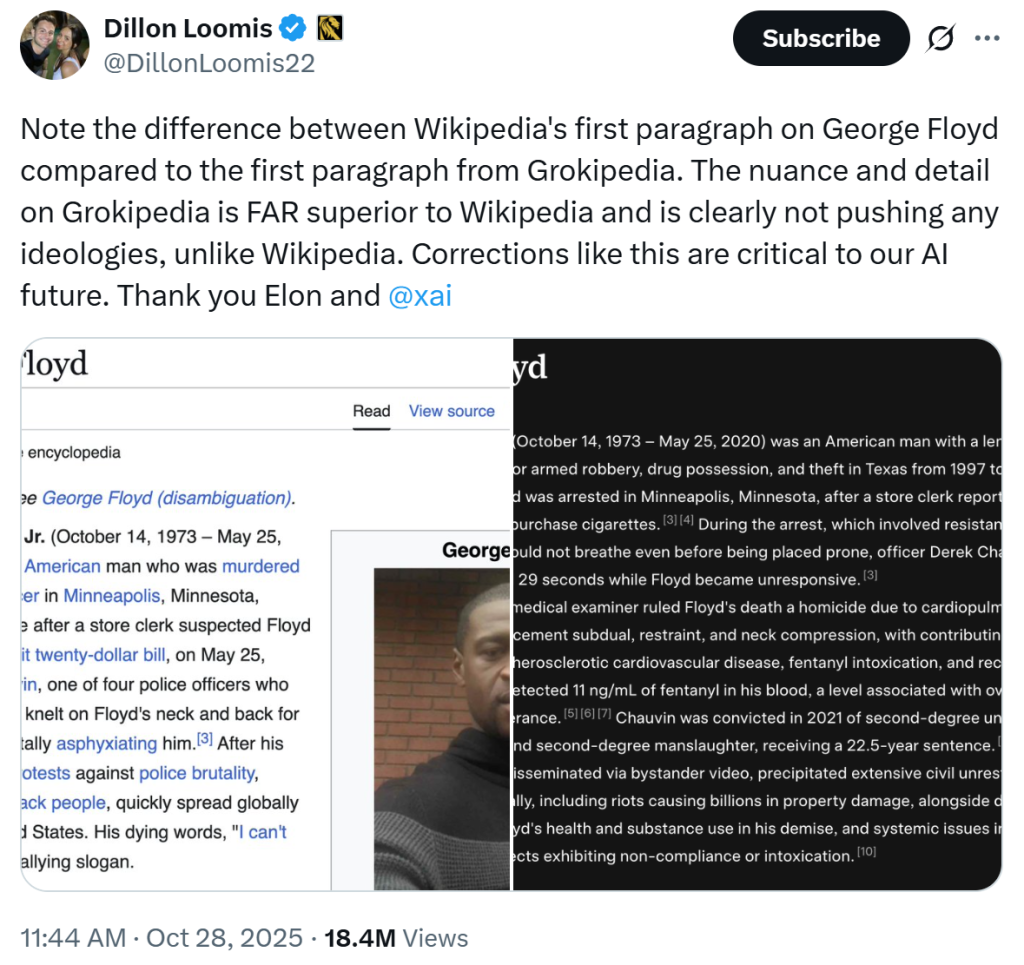
Wikipedia vs Grokipedia on crypto
Wikipedia’s dismissive treatment of Bitcoin is particularly illuminating when compared with Musk’s version, which many attribute to the influence of professional crypto skeptic David Gerard, who was a senior administrator and editor at Wikipedia from 2004 until this year.
Ironically, the part of his Wikipedia entry that indicates he stepped down this year says “citation needed,” but if true, it may be related to recent publicity around his controversial approach to editing.
Read more: Crypto critic David Gerard — Can FUD ever be useful?
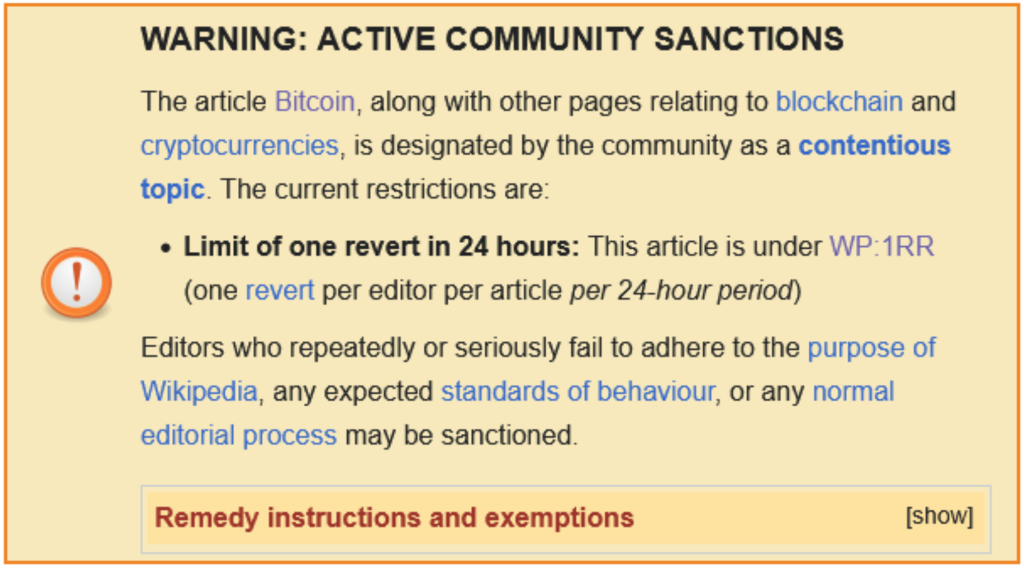
Like most entries on cryptocurrency on Wikipedia, the Bitcoin entry has been under various forms of editing “protection” for more than a decade and has been designated a “contentious topic” under “active community sanctions”.
This effectively limits editing of the article and only allows a small subset of powerful editors and administrators to change the content. This helps explain why the crypto content takes a fairly negative approach to the topic and overlooks many key details and developments.
Cryptocurrency publications are not considered “reliable sources” by Wikipedia, either, meaning the content is often sourced from mainstream journalists who have a limited understanding of the topic.
Read also
In Wikipedia’s entry on Bitcoin, the introduction highlights Bitcoin’s “use by criminals,” which is again emphasized in the payments section, which claims Bitcoin is rarely used in regular transactions but is popular for criminal activities.
It quotes crypto-hating economists Joseph E. Stiglitz and Kenneth Rogoff to support this argument, and again quotes them describing cryptocurrencies as an “economic bubble” with zero intrinsic value. The only scholar who disagrees that Bitcoin is a Ponzi scheme….instead calls it a “collective delusion.”
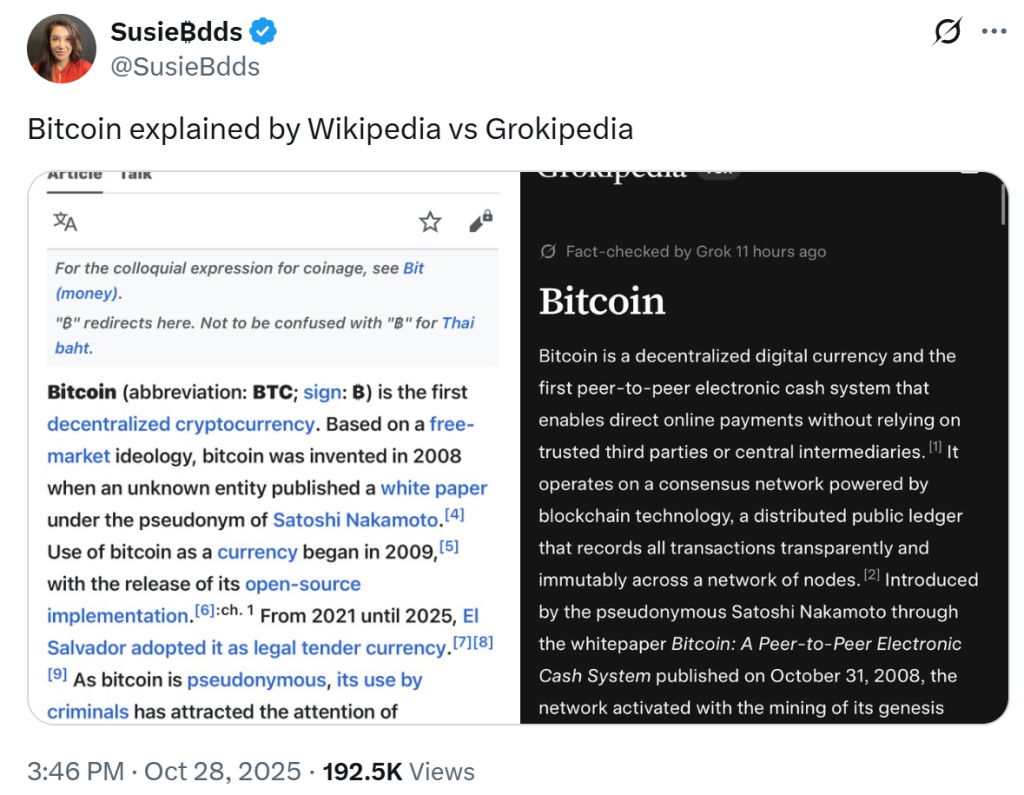
Grokipedia does a far better job with a much more detailed 11,000-word write-up compared to Wikipedia’s 4,500-word entry, and arguably presents a more balanced view.
While Grokipedia acknowledges Bitcoin’s “early associations with illicit uses,” it also suggests this aspect has been overblown, and that Bitcoin’s transparency makes it traceable and unsuited for criminal use anyway.
“Bitcoin’s role in illicit finance remains disproportionately scrutinized relative to fiat currencies, where cash enables untraceable transactions comprising an estimated 2-5% of global GDP in laundering annually, per United Nations figures, versus crypto’s sub-1% onchain illicit share,” the entry states.
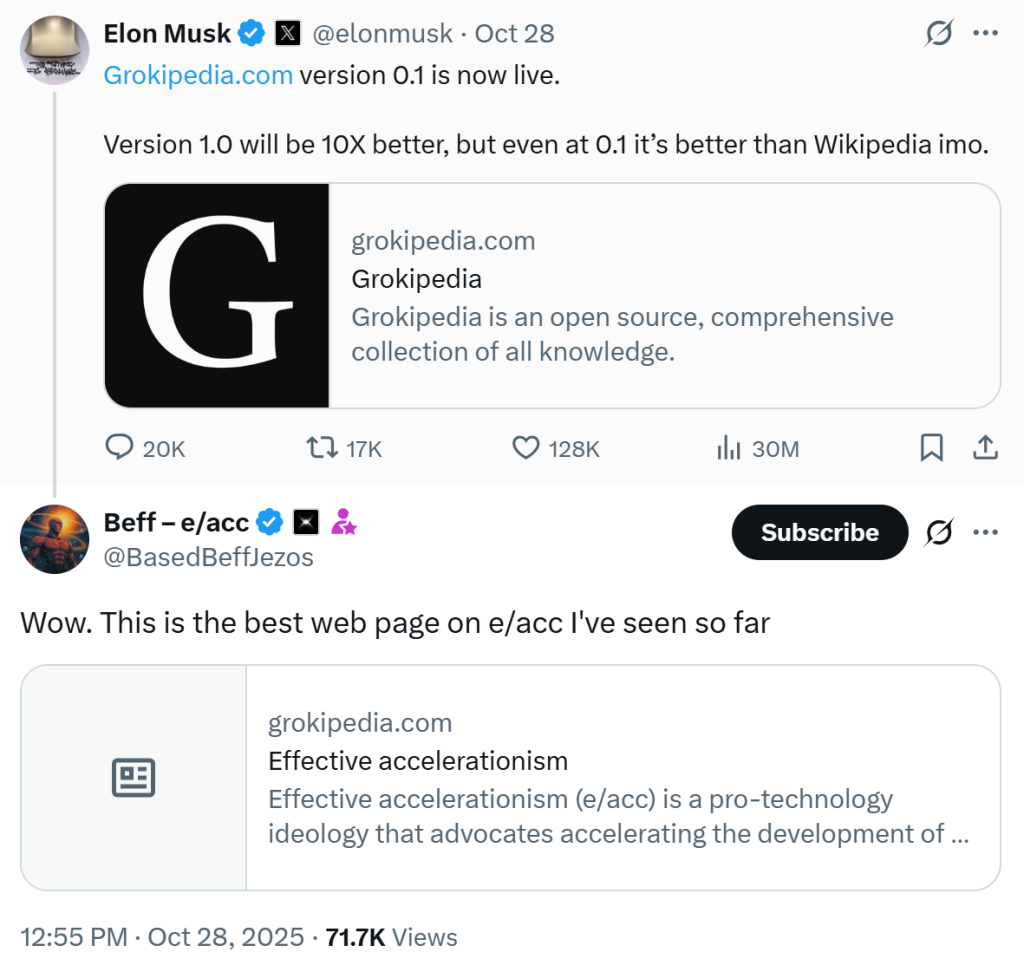
Grok doesn’t even mention the word “Ponzi,” whereas Wikipedia trots it out three times.
Ethereum also gets more love from Grokipedia, which devotes a whopping 14,000 words to the blockchain, diving deeper into its economics, supply mechanics and technical architecture, along with an exhaustive list of major Ethereum upgrades and EIPs. Wikipedia’s Ethereum entry, on the other hand, is a mere 4,300 words.
The Wikipedia entry also grudgingly notes the move to proof-of-stake cut electricity use by 99% and then spends three times as long arguing it doesn’t matter as someone might use those three-year-old miners for something else:
“The impact this has on global energy consumption and climate change may be limited since the computers previously used for mining ether may be used to mine other cryptocurrencies that are energy-intensive.”
“Incredibly, Grokipedia is already better than Wikipedia for Ethereum,” says Evan Van Ness, a former member of the Ethereum Foundation and founder of “Ethereum News Weekly.”
“It’s not as pretty, and it’s definitely not polished (not even rendering the EF’s logo on the second line), but it’s far more substantive and factual.”
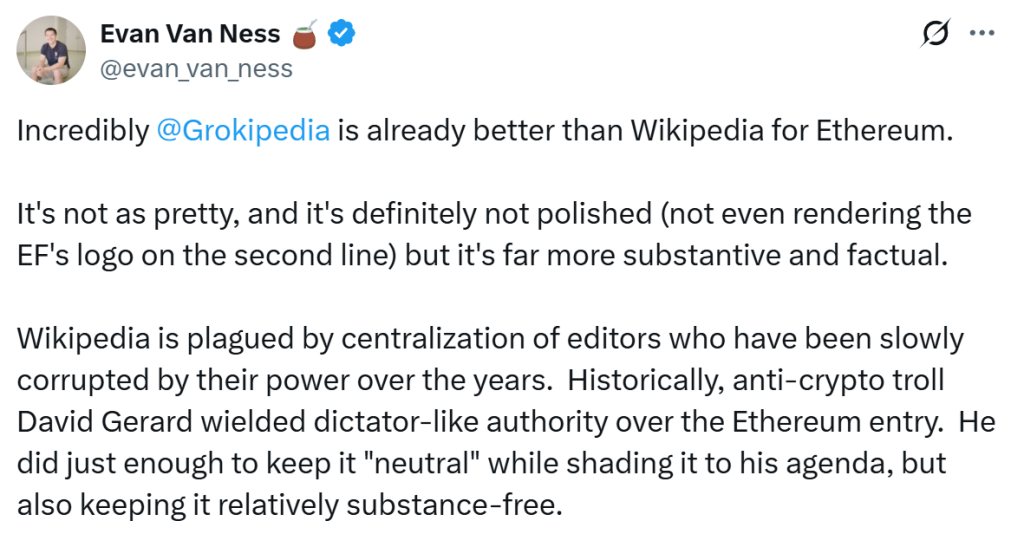
Is Grokipedia just biased to the right, then?
Wikipedia fans have come out in defense of the online encyclopedia and attacked Grokipedia for being biased in the other direction.
In an article on Monday, WIRED claimed Grokipedia is pushing “far-right talking points” while The Guardian said it aligned with “rightwing views.”
They took issue with Grokipedia entries that included claims that pornography worsened the AIDS epidemic in the 1980s, that social media led to a rise in transgender people, and that the Jan. 6 United States Capitol riots came as a result of “voting irregularities” that led to Joe Biden’s victory in 2020. (The entry at time of publication did not state that the voting irregularities occurred, just that Trump claimed they did.)
The outlets also note that Grokipedia slams the likes of CNN and The New York Times for “systemic left-leaning bias” and had even “labeled Wired as devolving into ‘far-left wing propaganda.’
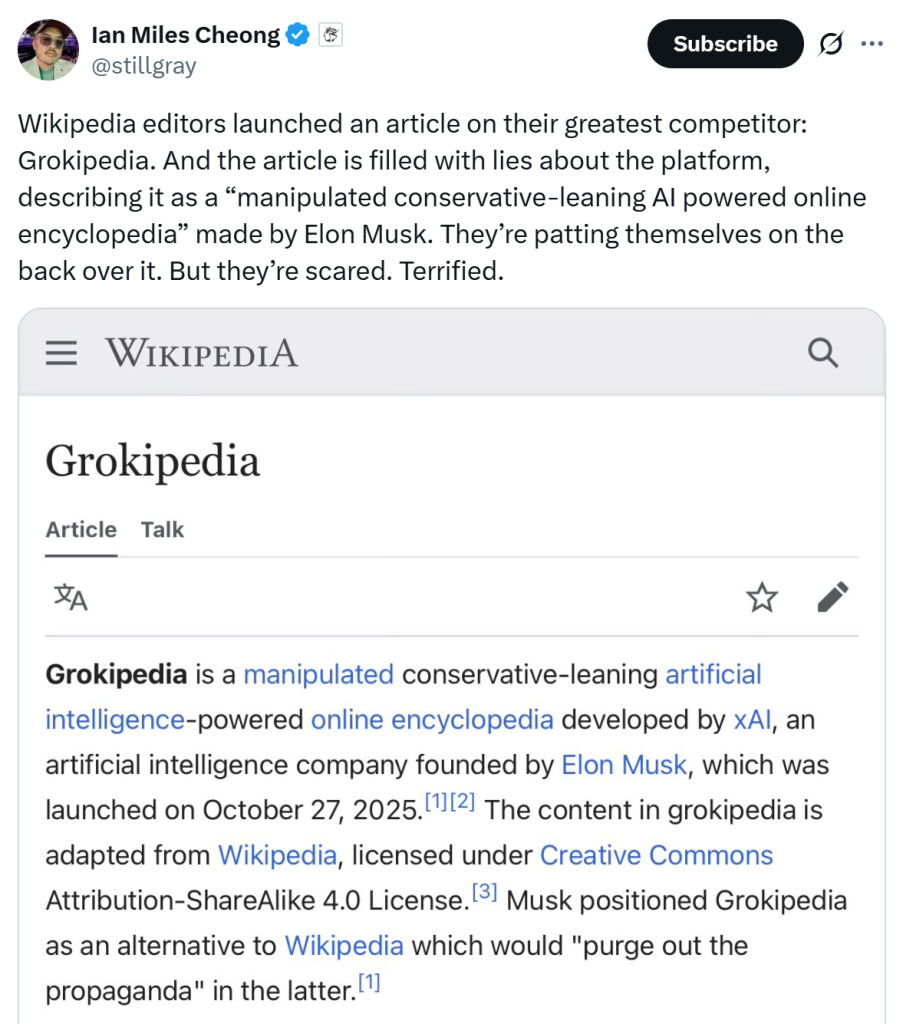
The solution: Read both
At this early stage, Grokipedia appears to do a better job of striking an even-handed tone across controversial topics that encompass different perspectives than Wikipedia, which often pushes a single narrative that its editors have deemed correct.
For example, Wikipedia has a highly opinionated article claiming there is “no evidence” at all for the COVID-19 lab leak hypothesis, which it derides as a conspiracy theory “weaponized” by politicians to foster “anti-Chinese sentiment.” That’s despite the CIA and The New York Times considering the hypothesis credible and the World Health Organization stating in June: “As things stand, all hypotheses must remain on the table, including zoonotic spillover and lab leak.”
As with all media, readers are likely to be best informed by reading publications with different perspectives, with the truth often lying somewhere in between.
“In my first ten tests, Grokipedia beat out Wikipedia significantly in terms of neutrality,” says Larry Sanger, who co-founded Wikipedia but left the project the following year and has since openly criticized it for its bias.
“What I want to warn you, however, is not to be reflexive fanboys and fangirls of Grokipedia.”
“It’s a very solid launch. But we don’t know how this is going to play out,” he adds.
Hopefully, Elon Musk can iron out all the details by the time the full version is released, and well before he puts a copy of it on Mars.
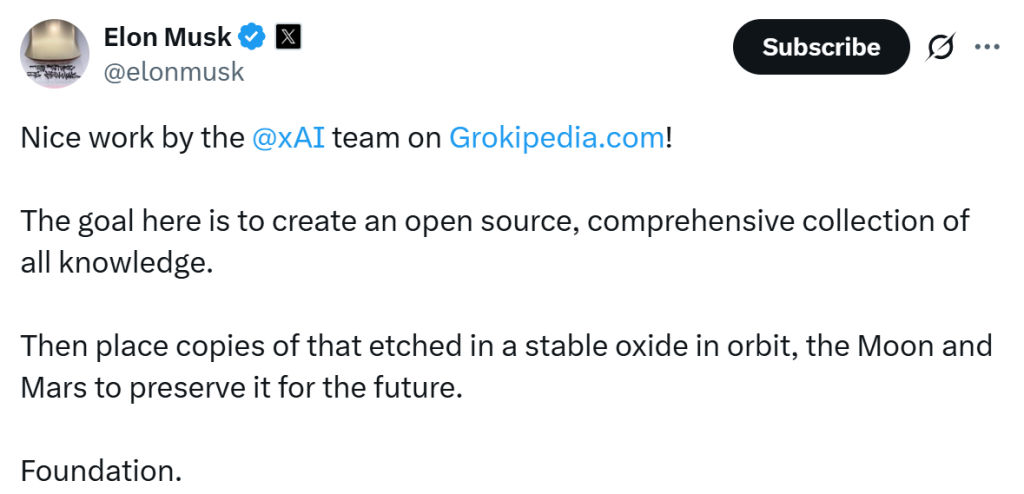
Subscribe
The most engaging reads in blockchain. Delivered once a
week.


Felix Ng
Felix Ng first began writing about the blockchain industry through the lens of a gambling industry journalist and editor in 2015. He has since moved into covering the blockchain space full-time. He is most interested in innovative blockchain technology aimed at solving real-world challenges.

